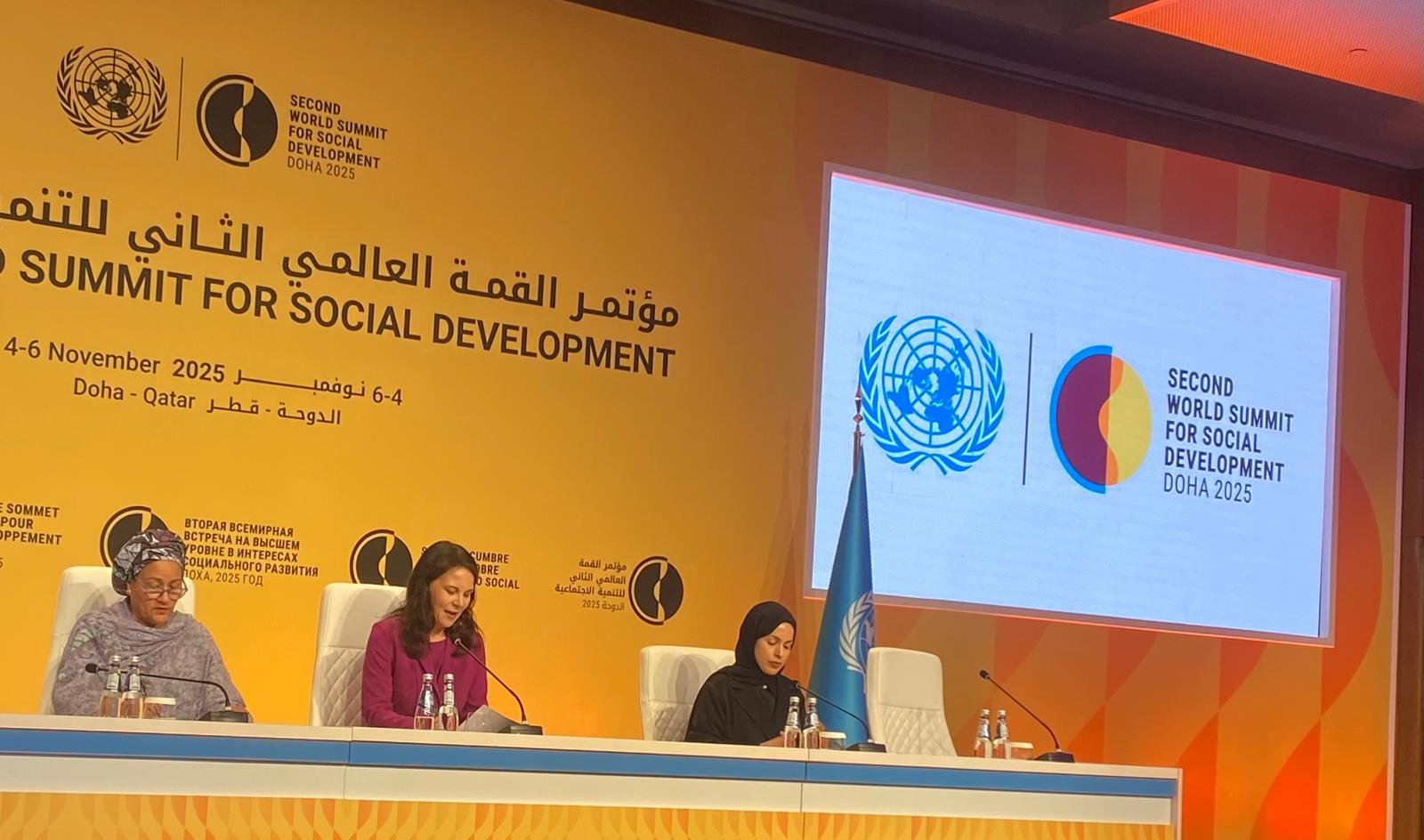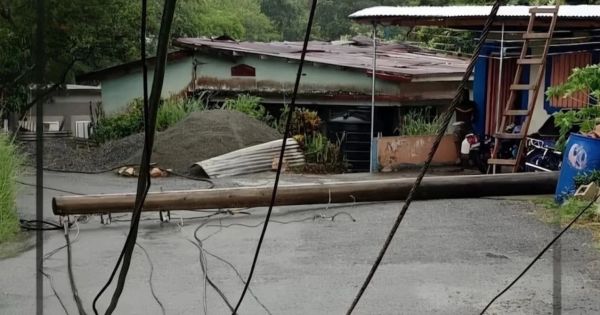Copyright dohanews

The Second World Summit for Social Development concluded in Doha on Thursday, marking the close of a landmark gathering that brought together global leaders, policymakers, and civil society to redefine pathways towards inclusive growth and people-centred progress. At the closing press briefing, Annalena Baerbock, President of the 80th Session of the UN General Assembly, thanked Qatar for hosting what she described as “a summit of action.” Baerbock stressed that economic growth alone cannot eliminate poverty without being accompanied by peace, stability, and justice. “One of the biggest problems is not money,” she said. “It is rather how how it is invested.” Over three days, more than 14,000 participants — including more than 40 Heads of State and Government, 230 ministers and senior officials, and representatives from international organisations, youth groups, and NGOs — gathered around a shared message: the world must act now to confront poverty, inequality, and social exclusion amid growing global crises. At the centre of the summit was the unanimous adoption of the Doha Political Declaration, a renewed global commitment to social development, which was adopted on the opening day. Building on the 1995 Copenhagen Declaration, the Doha Declaration addresses contemporary challenges, including climate change, digital transformation, and demographic shifts. It calls for universal social protection, equitable education, and inclusive health systems, while urging coordinated action to counter misinformation and hate speech that threaten social cohesion. UN Deputy Secretary-General Amina J. Mohammed said the Doha Declaration is not a document for the shelves. “It’s a commitment to place people at the centre of sustainable development,” she said. “But it also promises to deliver results that can be seen and felt in daily life.” UN Secretary-General António Guterres hailed the Declaration as a “booster shot for development”, a people-centred plan that places justice and equality at the core of sustainable growth. The Declaration highlights four urgent priorities: ending poverty, creating decent work, mobilising finance for developing nations, and ensuring that no one is left behind. Throughout the summit, delegates shared strategies and success stories from around the world. Nearly 150 submissions from governments and organisations showcased innovative solutions for social protection, employment, and poverty reduction, many of which were featured in a “Solutions Studio” promoting practical, scalable actions. Representing the host nation, Alya Ahmed Saif Al Thani, Qatar’s Permanent Representative to the UN, reaffirmed the country’s commitment to advancing global social development. “Qatar’s efforts continue through our international partnership,” said Al Thani in her closing speech. “Notably via the Qatar Fund for Development and Education Above All Foundation […] These initiatives reflect Qatar’s conviction that investing in people is the most sustainable investment a nation can make.” As the summit drew to a close, the experts agreed that the Doha Declaration is not merely a document, but a call to action. The challenge now lies not in agreeing on principles, but in turning tangible progress for people everywhere. “Social development is not a nice to have, nor an act of charity, but it is in the self interest of every country,” Annalena Baerbock, President of the 80th Session of the UN General Assembly, said during the closing press conference. “Countries have recognized that the time for talk is over.”



